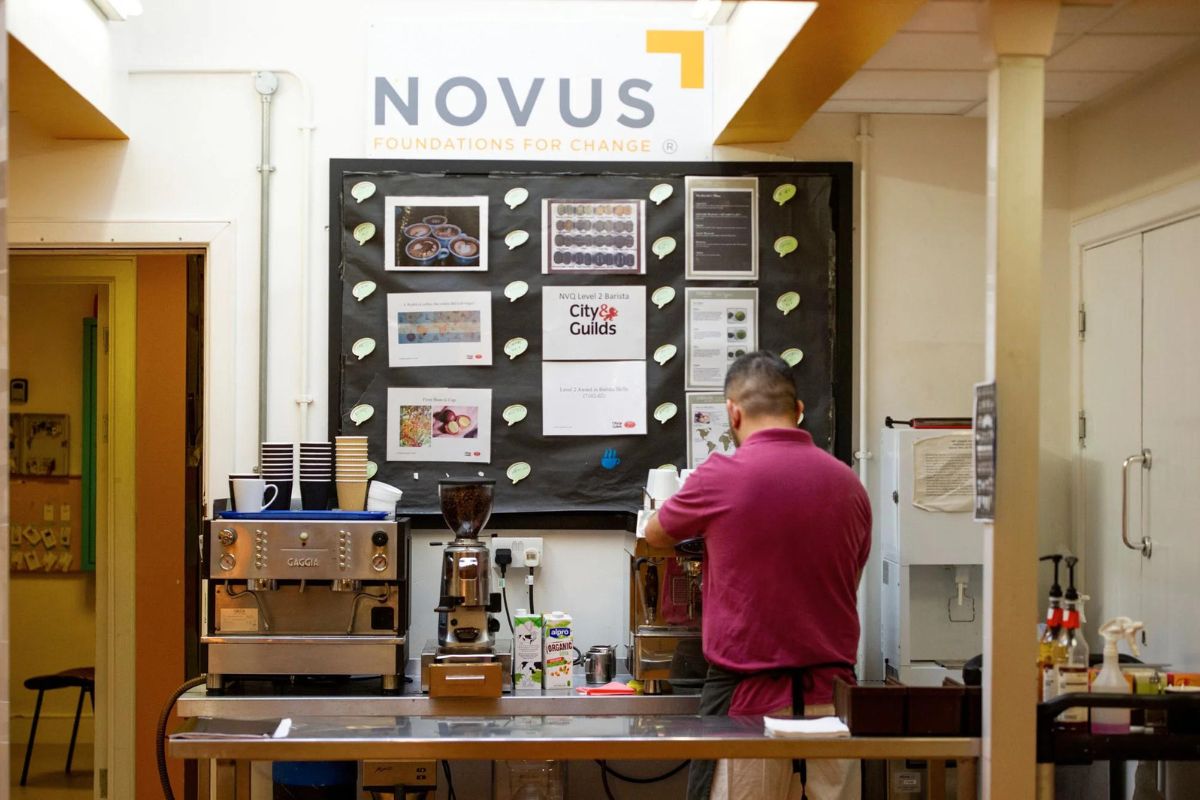Public calls on companies to employ ex-offenders

Research conducted by leading prison education provider Novus has found that a majority of the UK public believe that companies which hire ex-offenders make a positive contribution to society.
The poll* of 5,000 voters from across the political spectrum examined the opinions and attitudes of the British public on a range of subjects related to justice and rehabilitation of offenders.
With the UK economy facing a shortage of workers, 59% of respondents said that they think companies which hire ex-offenders are making a positive contribution to society, with a further 50% saying that they view these companies as more socially responsible than those that don’t.
The findings come as new government data revealed that the number of potential workers available for employers to recruit has dropped significantly, with the number of over-50s in the labour market dropping by over 900,000 since the pandemic started. The polling suggests that voters are supportive of companies which meet their recruitment needs by offering opportunities to ex-offenders.
When asked how comfortable they would feel with their own employer employing an ex-offender, 79% said that they would feel comfortable working with someone released in the last six months or less. Furthermore, one in three said that they would be comfortable with their employer offering a current prisoner an apprenticeship or job.
Former prisoner Adz Khan served a seven-year sentence under the joint enterprise laws and completed 37 different qualifications and seven diplomas while in prison. Since his release in 2010 he has rebuilt his life setting up a series of successful businesses.
Reviewing the data Khan commented:
“The Novus research isn’t just data; it’s a beacon of hope. It highlights a societal shift towards embracing inclusivity and compassion. Each job opportunity extended to an ex-offender is a step towards turning past challenges into future triumphs, reducing reoffending and nurturing a safer, more vibrant community.
“It’s incredibly uplifting to see the public’s growing appreciation for companies that champion social responsibility by hiring ex-offenders. These forward-thinking employers are not just hiring workers; they are igniting change-makers and rebuilding lives. They deserve our utmost respect and support.
“This compelling research by Novus should be the drumbeat that drives policy change. Investing in prison education and supporting re-entry into the workforce isn’t just good policy—it’s a celebration of human potential and a commitment to a brighter, more inclusive future.”
Commenting on the findings, Peter Cox, Novus’ Managing Director, said:
“We know that finding secure and stable employment upon release is key to breaking cycles of reoffending so it is extremely encouraging that the vast majority of people feel comfortable working with an ex-offender.
“This research provides companies – large and small – with reassurance that they can hire ex-offenders safe in the knowledge that it will not create issues for their existing employees and that is also highly likely to enhance their reputation and public perception.
“Coupled with the fact that employers in many sectors are crying out for skilled workers, these findings further underline the importance of providing prisoners with access to education and training programmes to ensure that they can find secure and stable employment upon release.
“Our previous research has found that a majority of voters across the political spectrum support investing in prison education. In this context, policy makers for all main political parties should feel empowered to ensure that prison educators have the resources required to help more offenders break the cycle of reoffending by acquiring the skills they will need to secure stable employment upon release.”
The findings follow data Novus published earlier this year which found that 60% of voters agree that educating prisoners and developing their skills is a good way to use taxpayers money. However, when told that reoffending costs the economy £18 billion every year according to Ministry of Justice data and that education is proven to reduce reoffending by 7.5 percentage points, support for educating prisoners and developing their skills increased to 68% overall, with support ranging from to 65% amongst Conservative voters to 73% among Labour voters.










